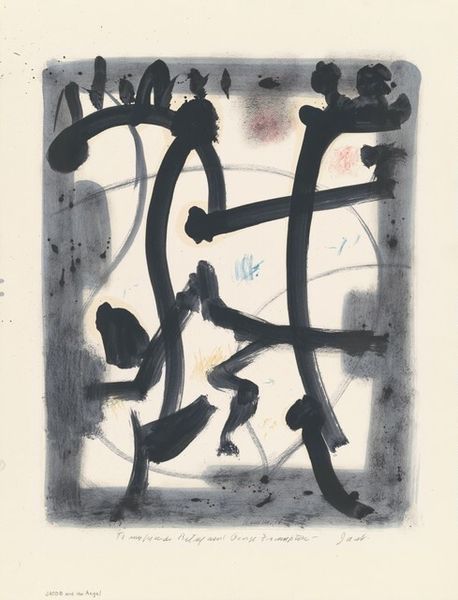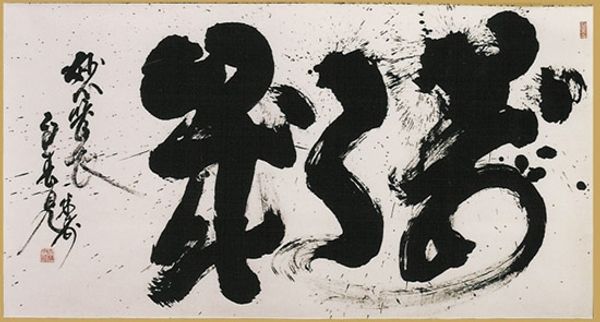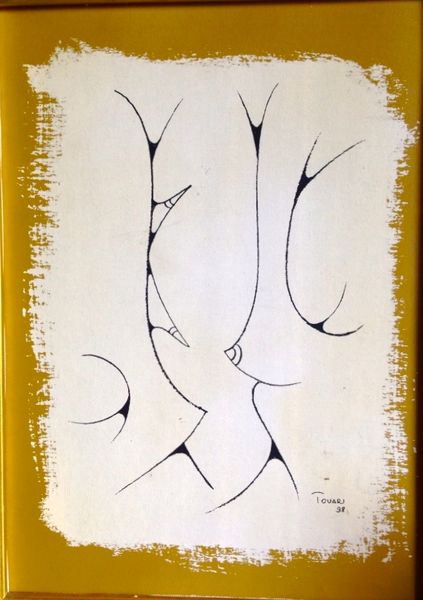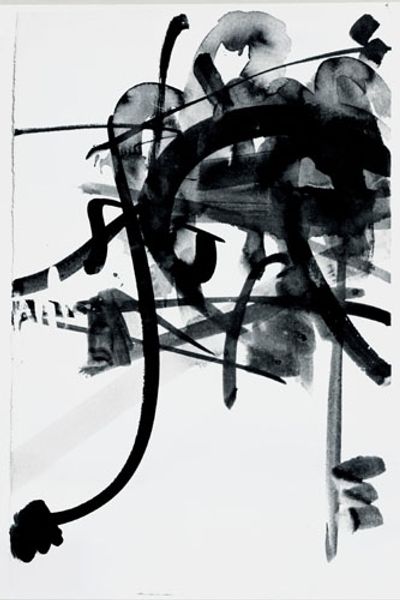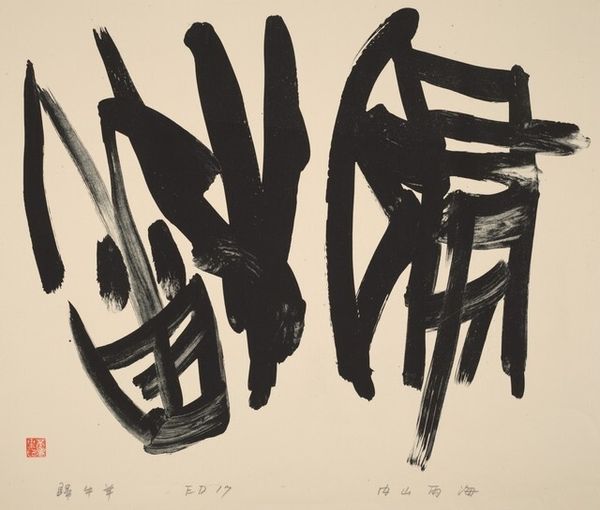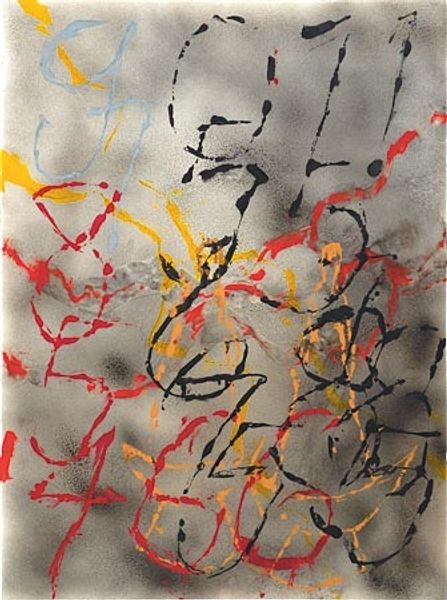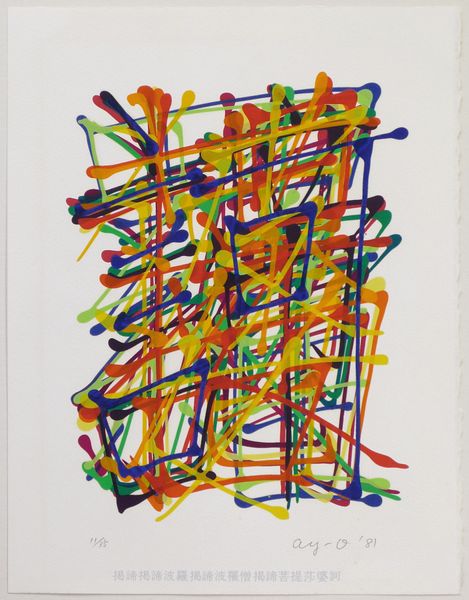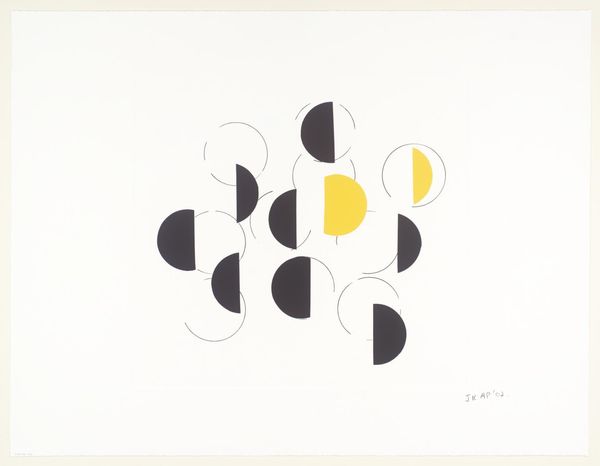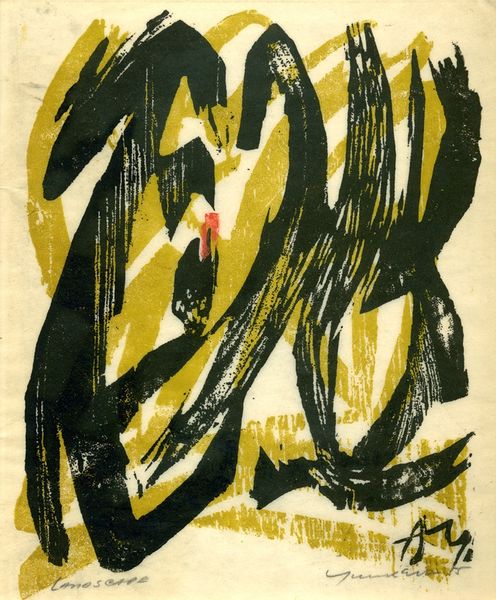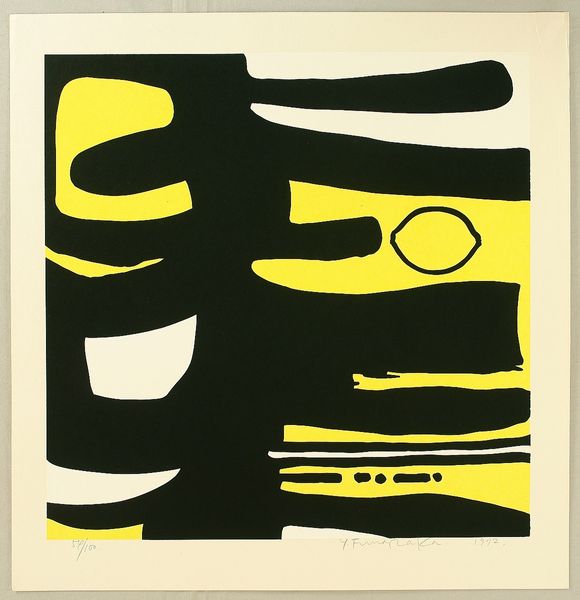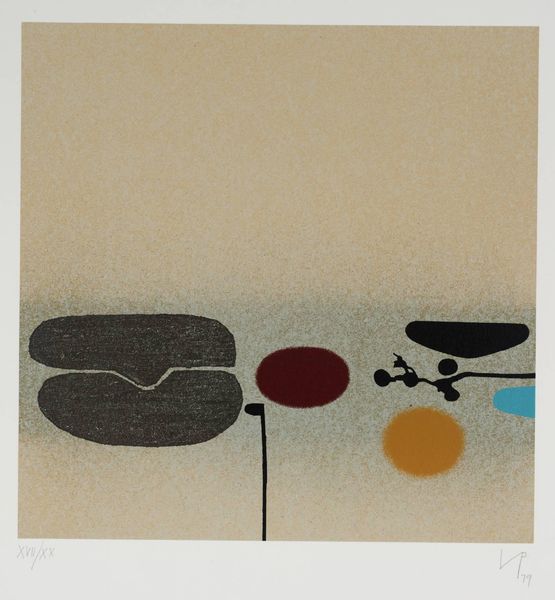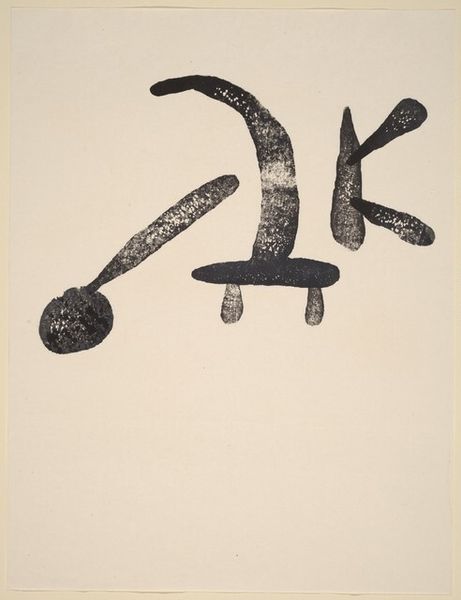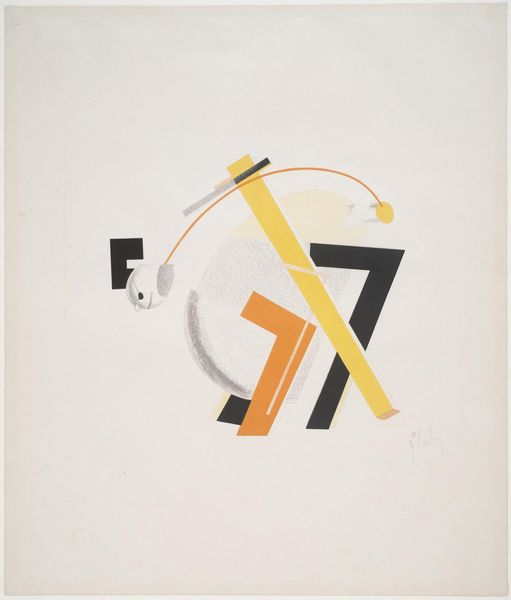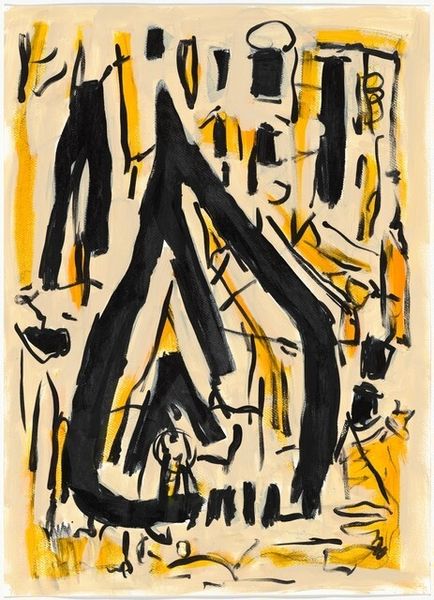
#
pop art-esque
#
word art style
#
photo of handprinted image
#
childish illustration
#
ink paper printed
#
feminine typography
#
pop art
#
word art
#
eye-catchy type
#
linocut print
Copyright: Funasaka Yoshisuke,Fair Use
Curator: Okay, let's dive into Funasaka Yoshisuke's "Lemons" from 1992, a work that uses printmaking to explore concepts of the everyday. Editor: It's...zesty! Seriously, I'm getting this immediate hit of citrus and a graphic punch. There's something playful about how the lemons are rendered. It's not about realism at all, is it? Curator: No, it pushes back against representational norms. We need to consider Yoshisuke's work within the context of the burgeoning Pop Art movement in Japan at that time. How everyday objects become vehicles for commentary on consumerism, perhaps even touching on global trade routes that bring citrus to Japan. Editor: Consumerism, sure, but maybe a wink at tradition too? Those almost calligraphic strokes in black – they're juxtaposed with the lemony pop in a way that feels very intentional, doesn’t it? The whole thing dances on that line. It's bold and simple, feels really present. Curator: Exactly. Think about the use of repetition and how this intersects with themes of mass production but also speaks to traditional forms of printing, creating multiples… Does the "feminine typography," as some suggest, speak to societal expectations around consumption and domesticity that are traditionally placed upon women? How does that intersect with our understanding of Japanese society? Editor: Hmm, hadn't thought of it that way, but I get it. And that handmade feel - the slight imperfections. It’s a bit cheeky, almost punk in its own way. It kind of disrupts the clean lines we might expect, throws some shade, doesn't it? Makes me question everything I assumed it was! Curator: Yes, its strengths rely on the intersectional reading, allowing us to probe the complex relationships between identity, commerce, and art-making. Editor: Well, this peel-back into meanings makes "Lemons" a far cry from just a sunny still life, eh? Definitely something that leaves you puckering up, ready for more. Curator: Agreed. It invites a crucial conversation about how art reflects, refracts, and ultimately reshapes our understanding of the world we inhabit.
Comments
No comments
Be the first to comment and join the conversation on the ultimate creative platform.
